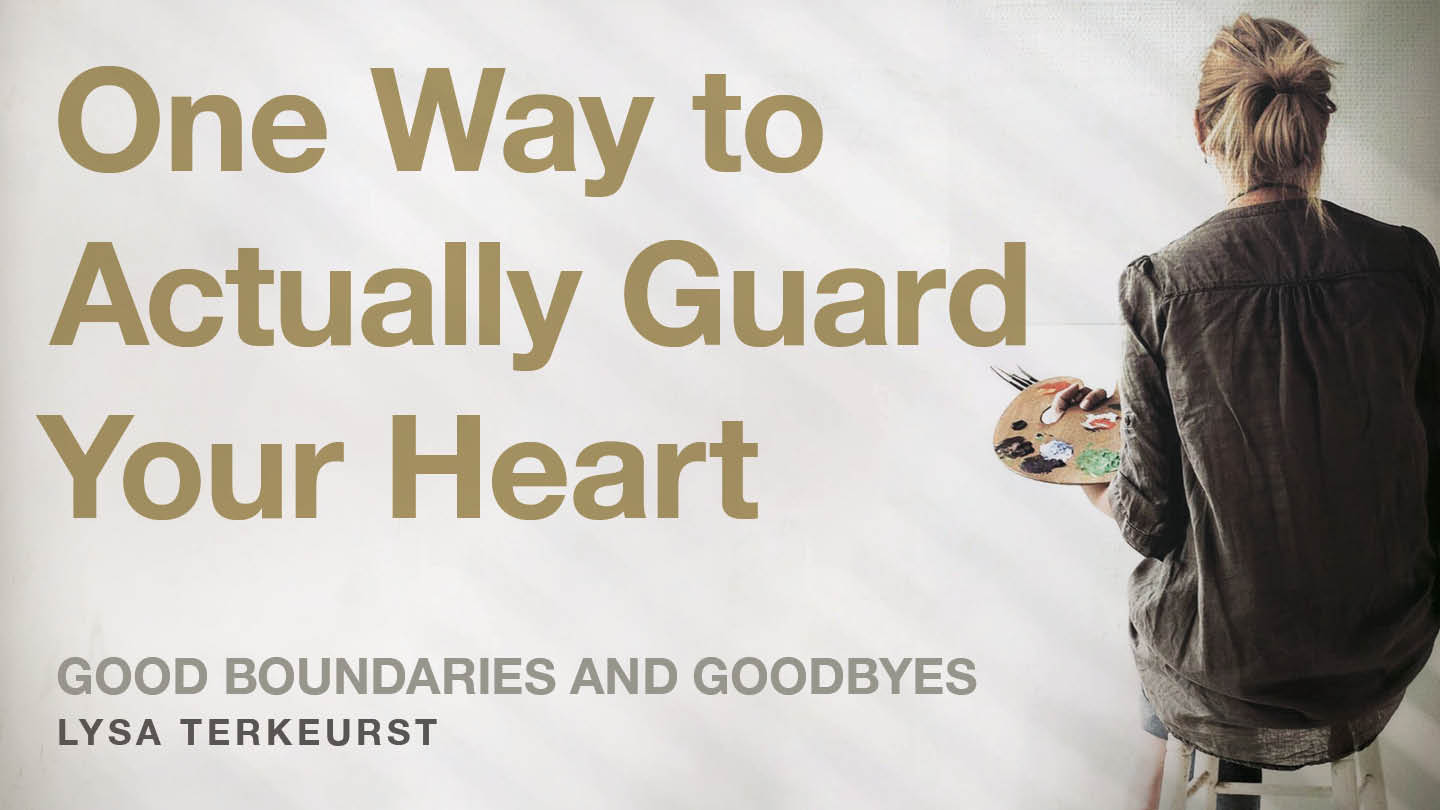Good Boundaries and GoodbyesНамуна


When my grandson Ryser was born, and my daughter was getting ready to take him home, his nurse said something I’ve never forgotten as she was giving her parting instructions: Trust is the oxygen of all human relationships.
Trust was easy with Ryser because as long as we were responsible to properly care for him, he was satisfied. But things are not so easy with relationships as we get older.
Here’s what I’ve realized: When we allow someone else access to us emotionally, physically, financially, mentally, etc., we need to require them to be responsible with that access. If I give someone level 10 access, but they are only willing or capable of level 3 responsibility, relational tension will exist. Trust will erode. And frustration will be ever increasing.
Level 10 access requires level 10 responsibility.
For example, if you trust someone with access to your Amazon Prime account, you would trust them not to use your debit card to pay for charges you didn’t approve of or put you in debt because of their irresponsible purchases. Sadly, this does happen. And not just with money—with our emotions, our capacity, and our time. If we’ve given them level-ten access, but they are only willing or capable of level-three responsibility, that’s the real source of the problem. The mistake we make is trying to get the other person to increase their responsibility. And if they refuse, we just feel stuck.
But, friend, there is hope. Instead of feeling stuck because we can’t control the choices of the other person, we can take control of reducing the access to the level of responsibility they are capable of. That solution is called a boundary.
Simply put, setting a boundary is being responsible enough to reduce the access we grant to others based on their ability to be responsible with that access.
Why is this important? Because people who are irresponsible with our hearts should not be granted great access to our hearts. Proverbs 4:23 speaks into this very thing as it instructs, “Above all else, guard your heart, for everything you do flows from it.”
We aren’t trying to protect ourselves from love. If we love, we will risk being hurt. But we are trying to protect ourselves for love. We don’t want to get so consumed with the pain and chaos of unhealthy relationship patterns that we become a carrier of human hurt rather than a conduit of God’s love.
Love can be unconditional, but relational access never should be. And boundaries help us protect this. Boundaries help us keep ourselves together so we can be the person God has called us to be. Boundaries help us protect trust. Boundaries help us cultivate the heart toward one another that God always intended for us to have—motivated toward real love and away from selfishness. And that is the way I’m determined to live.
I know this is heavy stuff. But after countless hours of studying and processing this topic of boundaries, I’m more convinced than ever that boundaries are the only fighting chance we have to live in the peace we all really long for inside our relationships.
RESPOND: Have you ever considered drawing boundaries may be a way to actually guard your heart? What might it look like if you were to require the level of responsibility from others that match the amount of access you've given them?
Scripture
About this Plan

Is it unchristian to set a boundary or sometimes have to say a necessary goodbye? Lysa TerKeurst has asked these questions. But after countless hours of counseling intensives and theological research, Lysa is more committed than ever to loving people without losing the best of who she is. She wants to help you begin to do the same through this 5-day devotional.
More
Нақшаҳои марбут ба мавзӯъ

A Conquered Foe

Divine Dialogue: Discover God's Heart and Purpose

Pawprints & Prayers: Dog Devotions on Comfort and Compassion

The Boom Squad: Young Hero Training

Creative Confidence: 7 Days to Step Into Freedom in Christ

The Image of the Invisible God

Flourish Where You Lead

DEPRESSION IS a LIE - a Podcast Series With Dustin Tavella

How to Deal With Difficult People
